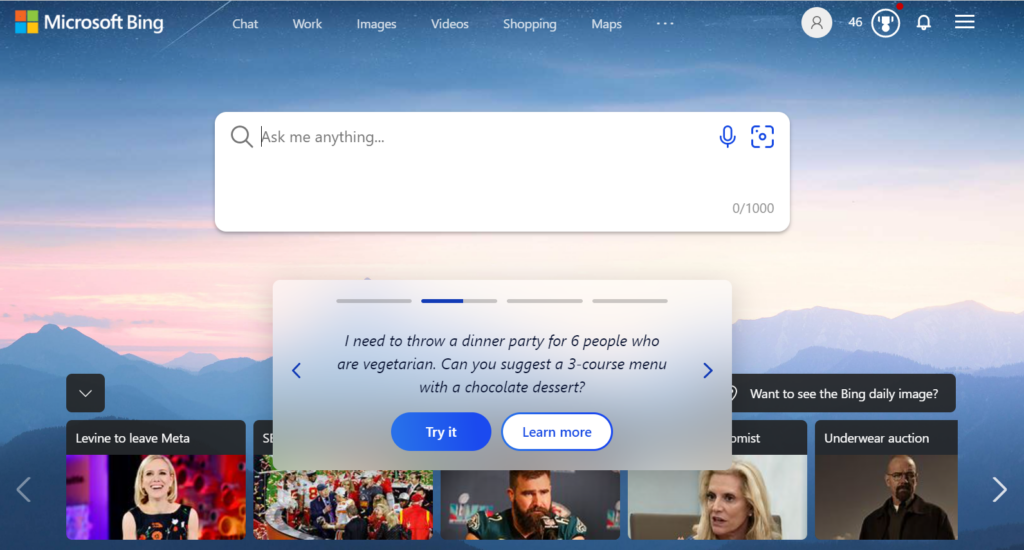Industry Commentary
I find it exciting that Bing will be releasing a new version of their search engine that will be utilizing AI technology. Microsoft also announced that they’re going to be implementing AI features into the Edge browser.
Unanswered questions now get answers
When we think about the traditional way of search, most people complete search queries by utilizing long-tail keywords because they’re trying to find the accurate and relevant information they need, as fast as possible. Therefore, rather than inserting one or two words (A.K.A: fat head keywords) for a broad search, they’ll just ask a question or insert a longer, more specific, search query.
In the past, search engines have been useful in listing out websites that may contain the information you’re looking for, but those websites may not have answered or provided the clarity you needed. In fact, Microsoft estimates that half of the 10 billion searches per day go unanswered! This has been a missed opportunity that has been waiting for an answer and Microsoft’s new AI is here to solve it.
What to love
The “Prometheus Model” that Microsoft is implementing will take search to the next level. Bing will now:
- Show side-by-side search results, with AI annotations (comments, insights, users)
- Allow users to speak with a Bing chatbot, which will function like ChatGPT
- Retrieve news from recent events, so that you can get recent and relevant information
Microsoft is also launching AI features that allow you to “chat” and “compose” on the Edge browser’s sidebar. The “chat” aspect allows you to receive a summary and ask questions about a webpage and/or document, while the “compose” portion is a writing assistant. It will allow you to generate prompts, emails, and posts, based on the websites and/or documents you’re browsing.

What not to love
These major changes that are likely going to cause a new paradigm for search, leave us to ask:
- If the AI is summarizing websites, then will revenue for websites be impacted?
- How do we ensure that we’re getting accurate information? This is already an existing problem when people are searching for a diagnosis based on experienced symptoms.
- How will this impact the online ecosystem?
- How will this impact advertising?
Where will ChatGPT and AI shoot its arrow next?
Google announced a “Code Red” when Microsoft launched ChatGPT and has since seemed to be scrambling to put together a chatbot competitor, named Bard. You may have already seen during its live demonstration, Bard replied with a factual error. Google has already been struggling, as they’ve had four consecutive drops in quarterly profits, with a 34% drop in profits this last quarter. It leaves me to ask: Is Google rushing this tech too fast?
Google isn’t the only company competing in the conversational AI space. Two foreign-based tech companies, Alibaba and Baidu have also thrown their “hat” in the ChatGPT ring.
What do you love about Microsoft’s newest tech? What do you not like so far? I’d love to know what you think.

About the author: Maria Aumaitre is an Associate Director of Digital Media at Chacka Marketing. She has over eight years of experience in the industry serving some of social media’s largest advertisers. Learn more about Maria.



